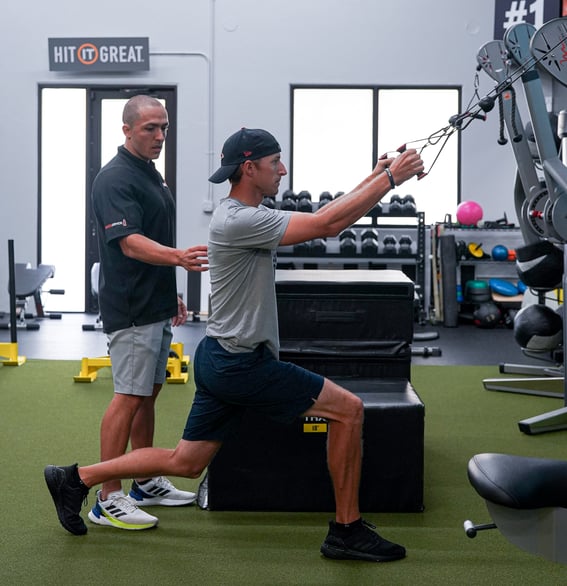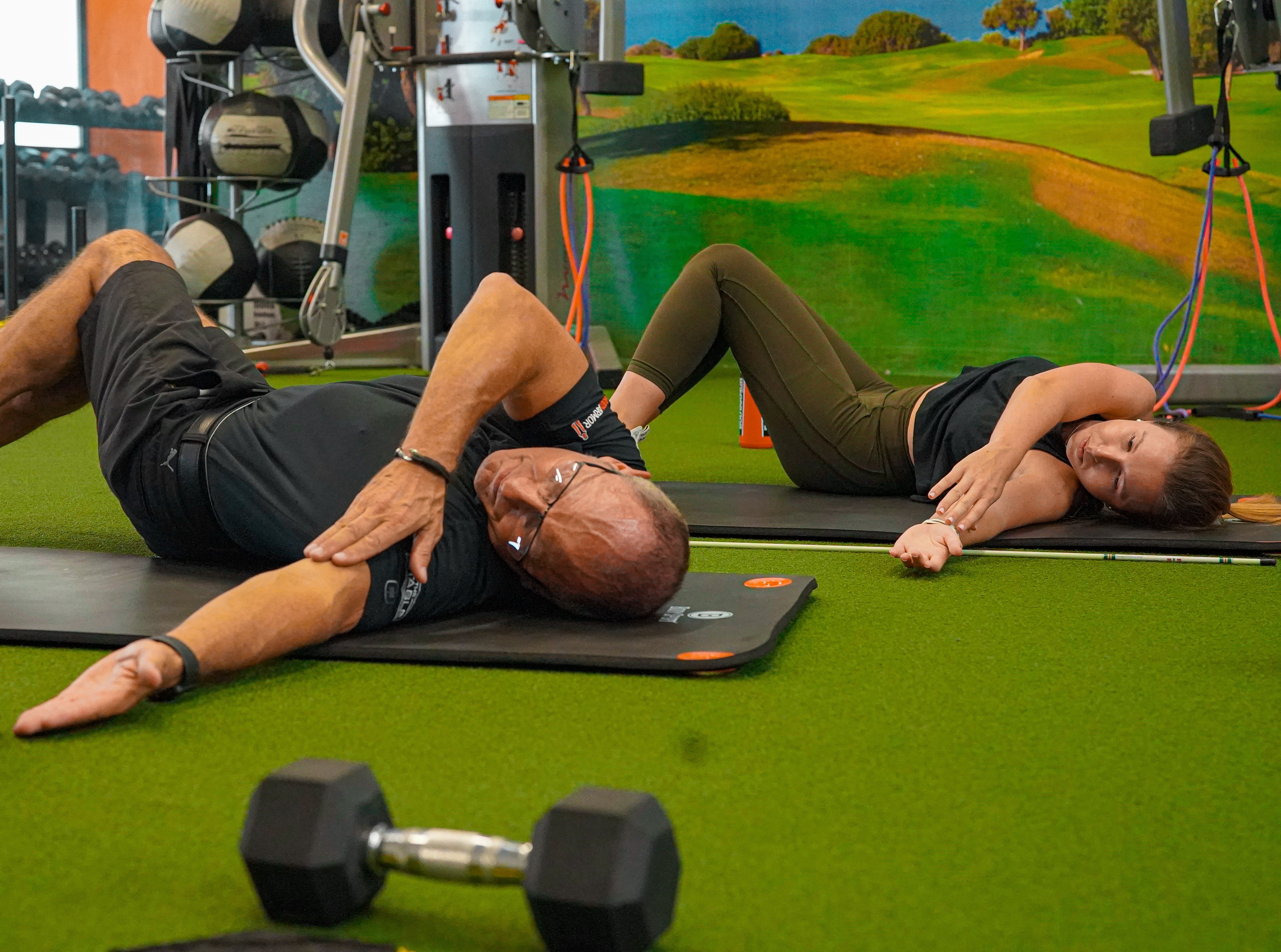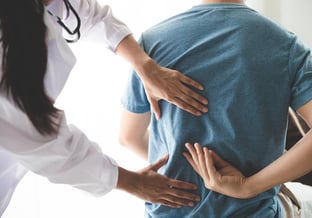
While there are many areas of the body prone to injury, few injuries are worse than back injuries. Whether it’s a dislocated disc or nerve damage causing intense pain to shoot up your spine, not treating your back pain (and prevent it from happening in the first place) is never a good solution. Left untreated, you risk even more serious injuries and debilitating pain and suffering. So let's think twice and swing once.
When you wind into your backswing, slow to a stop and unload into your downswing, there is a lot of pressure on the spine. If the muscles around your spine are not strong enough to handle that pressure, injuries can follow.
In this article, we’re going to go over the most common causes of golf-related back pain, exercises you can perform to prevent these issues from happening and how to treat existing conditions (with the help of your doctor, of course).
Common Causes of Golf Back Pain
The golf swing can be dangerous if you’re not properly trained. Poor swing mechanics combined with rotational forces can cause significant damage to your spine. There’s a real, inherent risk to the lumbar spine (lower back) and thoracic spine (upper back).
3 Reasons Why Golfers Hurt Their Back
1. Core Weakness
Our abdominal muscles play a significant role in preventing back injuries. When the core is weak, it increases the strain on the joints within the lower back during the rotational movements of a golf swing.
A weak core can also impact your posture during the golf swing. When you struggle to maintain a good posture, not only do you risk injuries, but your inconsistent contact during your golf swing will often result in poorly struck golf shots. Your game will suffer as well.
2. Limited Rotational Mobility
If you’ve been reading and watching our videos, we place a HUGE emphasis on making sure your body is flexible. Stiff muscles, ligaments and tendons are the number one reason for common golf injuries.
For example, if your hip rotation is stiff, you can put a lot of strain on the lower back during your swing as the body attempts to compensate for your lack of mobility.
3. Weak Glutes
While this isn’t talked about a lot, your glutes play a major role in stabilizing and absorbing some of that shock during a swing.
The big glute muscles help support the back muscles and take pressure off of the smaller, more vulnerable back muscles. The muscles of our body work together to make things happen; if one muscle set is too weak or too stiff, it impacts the other muscles around them.
Even The Pros Suffer From Back Pain
Despite having a team of highly-trained sports therapists, doctors, strength trainers and coaches, even the best golfers in the world are not immune to back pain.
Many of us remember Tiger Woods’ traumatic incident at the 2013 Barclays PGA Tour. After hitting his second shot on the 13th hole during the final round, he fell to the ground in pain, later citing back spasms as the cause of the issue.
He tried conservative therapy, which included rehabilitation, medications, limiting activities and injections, but it failed to resolve his pain. Finally, he opted to have surgery to help get him back on the golf course.
Avoiding Back Pain and Injuries on the Course
As with any type of injury, making sure your body is trained to handle the golf movements is critical if you want to stay healthy and avoid long periods of forced healing.
Preventing injury requires hard work, awareness and an opportunity to prevent the damage from happening again. Abdominal muscles help prevent injuries to the back, keeping your spine healthy, reducing muscle strain and so much more.
Treatment Options If You Already Have Back Pain
If you’re already suffering from back pain or spinal injuries, there are a variety of treatment options available. Some involve the use of sports medicine, others involve spinal surgeons, and then there are options that cater to our body’s natural ability to heal itself. 
Which option is best for you is far too broad of a question to answer in a single article. Regardless of your condition, you should always seek out medical advice from a doctor or other medical professional.
Here's Coach Joey D with his take on the golf swing, back pain, pre-hab and how you can stay ahead of the curve:
For great mobility work with Joey D, Kolby Tullier and Chris Noss, check out our Golf Fitness by Hit It Great® app and see how they can help you move better, feel better and play better golf.
© 2020 joeydgolf.com


